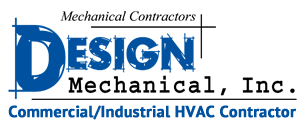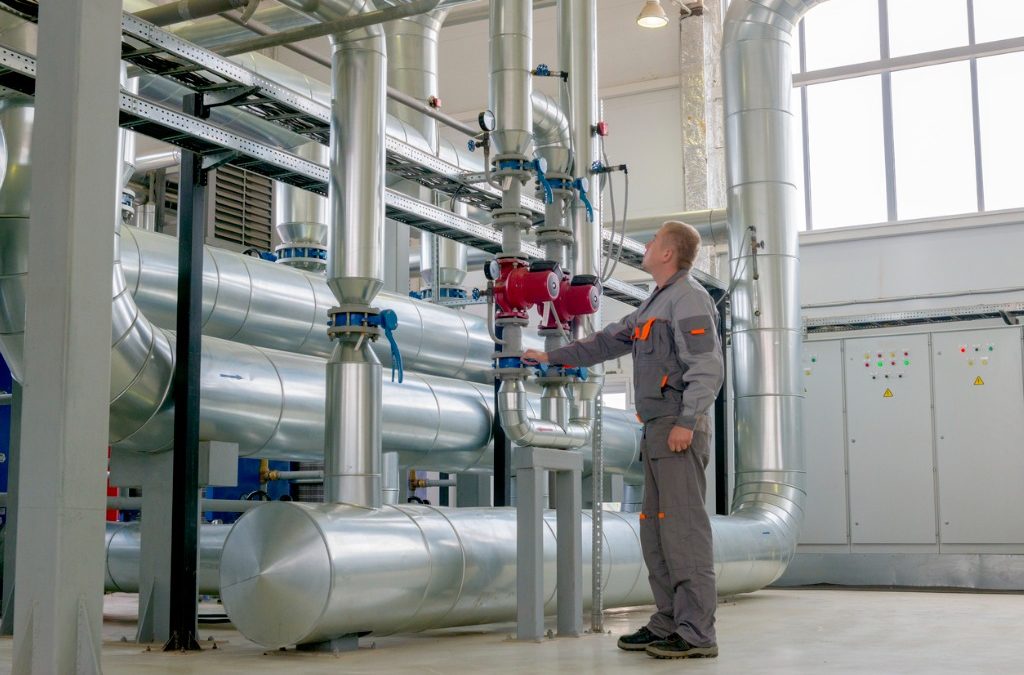As a business owner, you rely heavily on your commercial building to ensure your company’s day-to-day and overall success. As a result, choosing the most efficient type of boiler to keep your building comfortable is a crucial decision that every building owner or manager must face.
Although the technology of commercial boilers remains substantially the same, minor differences between the various types can make others significantly better suited for specific types of commercial buildings than others.
When choosing a boiler for your business, it’s critical that you understand all of your options. However, with numerous factors to consider and various types of commercial boilers available, the decision-making process can be challenging for many business owners.
Below, we’ll provide you with a comprehensive guide to the different types of boilers available for commercial businesses and why some may offer more advantages than others to help you make the best decision for your company. Keep reading below to learn more and find out how Design Mechanical and our team of HVAC experts can help you choose the best type of boiler for your business.
Understanding the Basics of Commercial Boilers
Commercial boilers, in their most basic form, are designed to transfer energy from the combustion of fuel or an electrical current to transmit heat energy from one area of your facility to another. Essentially, the boiler is a pressure vessel that captures heat and efficiently transports it from the boiler room to the point of usage.
This process can be completed using various methods. For instance, some commercial boilers use hot water directly, while others use water that has been converted to steam. Pipes then circulate hot water or steam throughout your facility, where the water or steam enters radiators or other components that disperse heat, providing the necessary heating to make your indoor work environment comfortable for employees, tenants, or visitors.
Commercial boilers, like other types of HVAC equipment, are made up of numerous components.
Burner
The burner is the component that generates the flames that heat the water in the boiler. The burner is in charge of producing a steady, effectively-burning flame by combining fuel and oxygen.
Combustion Chamber
The combustion chamber is the area of the boiler where fuel is burned to heat the water. Depending on your system, you can use oil, natural gas, or renewable energy. The chamber houses the burners and is specifically designed to provide a safe and secure zone for high-temperature volatile fuel combustion.
Heat Exchanger
Much like boiling water in a kettle, the heat exchanger is a critical component that transfers heat from the burners to the boiler’s water.
Controls
The controls allow users to govern when and how frequently the burner burns, the temperature of the water, the fuel consumption rate, and the quality of the fuel-oxygen mixture. There are also safety controls in place to ensure that the internal pressures in the boiler do not become too high, that the water temperature remains within a safe range, and that the system continues to function effectively.
Exhaust Stack
The exhaust stack, also known as the flue, is a series of pipes that transports exhaust gases from inside your facility to the outside environment. To ensure that harmful gasses, such as carbon monoxide, are securely vented away from your facility’s interior, the exhaust stack must be carefully constructed.
Boilers are utilized in almost every industry worldwide to assist with HVAC, manufacturing, processing, curing, cleaning, and other tasks. However, because of the inherent risks of commercial boiler operation, extensive laws and regulations for the manufacturing process and operation of these pieces of equipment, such as the ASME code, are in place and must be abided by all commercial businesses.
As a result, there are various factors to consider when choosing between different types of boilers for your business. Below, we will walk you through the various commercial boilers available to help you understand them one by one.
The Various Types of Commercial Boilers
Commercial boilers come in various types, each providing its own set of unique benefits and advantages. Understanding the many types of boilers will help you determine the criteria that match your company’s individual needs.
Condensing Boilers
Condensing boilers are rapidly replacing traditional boilers in commercial markets. Because of the comparatively low temperature of hot water loops in small commercial applications, a condensing boiler is specifically designed for the high energy efficiency that traditional boilers cannot achieve.
Condensing boilers use a specifically-designed heat exchanger to lower the temperature of the flue gas, allowing it to condense and absorb the extra energy from condensation. Thanks to the condensing of water vapor in the exhaust gasses, condensing boilers have an incredibly high thermal efficiency of up to 98%.
Electric Boilers
The electric steam boiler is another type of boiler that is commonly employed in commercial applications. Electric steam boilers work incredibly efficiently and are environmentally friendly because they provide heat to a location without using any fossil fuels. Because there is no need for fuel combustion, electric boilers have no exhaust stack, no fuel-handling equipment, and no fuel supply, resulting in minimal complexity.
With electric boilers, the emphasis is again on heating water and producing steam, but this time using electrical resistance. There is no fuel and no combustion in this boiler. Instead, electric boilers are the most “green” boilers due to their minimal noise, compactness, and overall tiny size. Another benefit is that these systems are basic, and inspecting and removing parts is simple.
However, these advantages come at a cost: electric boilers are among the most expensive boilers on the market. As a result, electric boilers are frequently used in conjunction with other types of boilers.
Firetube Boilers
Firetube boilers are one of the most traditional types of boilers in which hot gasses are routed from the heating source through tubes that circulate through a water-filled chamber. Firetube boilers perform best when there is an efficient need for steam and are best suited for low-pressure applications.
Firetube boilers employ a cylindrical vessel with the combustion gasses contained within the tubes and the flame positioned in the furnace. The vessel houses not only the tubes and furnace but also the steam and water. As a result, firetube boilers are designed to work as an integrated system to achieve maximum efficiency.
Firetube boilers are frequently used in smaller industrial operations that require lower operating pressures. Because a conventional firetube boiler has a basic design and requires less maintenance than a watertube boiler, these boilers provide a cost-effective heating solution.
The most common types of firetube boilers are two-pass, three-pass, and four-pass, referring to the set of tubes through which the flue gas passes, with each design providing its own set of advantages and disadvantages. Firetube boilers with more passes are often more efficient and have a higher extraction rate than those with fewer passes.
Watertube Boilers
Watertube boilers are essentially designed to circulate water in tubes heated externally by the fire in which the hot gasses from combustion move between the water-filled tubes. Compared to firetube boilers, these types of boilers have a higher capacity and can manage higher pressures and temperatures.
When the boiler’s thermostat indicates that heat is required, the burner is started to heat the fluid. The expansion of heated water results in transferring this excess volume into an expansion tank. When the heat is radiated, the cooled water flows back to the boiler to be reheated. Due to the comparatively low water content, watertube boilers can deliver extraordinarily fast steam capabilities and rapid responsiveness to changing demands.
Because water is heated in smaller amounts, heat transfer is quick, allowing the system to benefit from high-pressure demands, systems with varying requirements, and industrial-scale processes. As a result, watertube boilers are significantly more common today than conventional firetube boilers because they are easier to inspect and maintain.
The Differences Between Residential and Commercial Boilers
While both residential and commercial boiler systems are designed to achieve the same purpose, there are various qualities that differentiate the two types of systems. This is because addressing the need for comfort in commercial buildings differs significantly from addressing the need for comfort in the home.
Because residential and commercial boiler systems must serve the needs of different areas, the overall output performance of a boiler is the primary difference between the two types of systems. Typically, residential boilers may only be required to heat 5-7 rooms in a home, which means most boilers are designed with an output ranging from 24kW to 40kW. In some instances, larger homes may require a boiler with an output of up to 70kW.
Commercial boilers, on the other hand, typically have an output larger than 70kW, with some businesses requiring boilers that can produce an output ranging from 200kW to 1500kW or higher. In rare cases, a smaller boiler may be used to heat an ample commercial space that has been appropriately insulated or a small-to-medium-sized shop.
Commercial systems also differ in terms of the components used, such as thermostats, condenser fans, compressors, evaporators, blowers, and dampers. Because a commercial boiler system must heat a much larger space, residential boiler systems are substantially smaller than commercial boilers. Generally, the larger the building, the larger the boiler system.
As you can see, when choosing a commercial boiler, there are various factors to consider. However, knowing your options and understanding why a particular boiler system may provide more advantages than others is crucial to making the best decision for your business. As a result, it’s vital that you work with a professional HVAC service provider to ensure you select the best boiler system that meets all of your company’s requirements.
Experts in Commercial Boiler Systems and HVAC Services in Kansas City
As a leader in commercial HVAC services in Kansas City for more than two decades, Design Mechanical remains dedicated to providing our customers with prompt and dependable services to fit their needs. With over 100 service experts on staff, you can rely on our team of certified and experienced specialists 24 hours a day, seven days a week, for any of your HVAC repair and maintenance needs.
If you want to learn more about how we can help you choose the best boiler for your commercial business, contact Design Mechanical today to schedule a free consultation and discover why we are Kansas City’s number one choice for commercial HVAC services.

